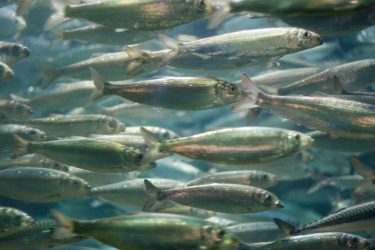
To successfully manage fisheries, factors in the environment that affect fish — like food sources, predators and habitat — should be considered as part of a holistic management plan. That approach is gaining traction in fisheries management, but there has been no broad-scale evaluation of whether considering these ecosystem factors makes any economic sense for the commercial fishing industry.
A team of ecologists and economists has addressed that question in the first study to test whether real-life ecological interactions produce economic benefits for the fishing industry. The results were published online last week in the Proceedings of the National Academy of Sciences.
“Going into this, I shared the belief that because we know species are connected, ignoring that connection is potentially putting ecosystems in harm. What we really found was a much more nuanced benefit,” said lead author Tim Essington, a University of Washington professor of aquatic and fishery sciences. “Rather than enhancing economic benefits, the holistic approaches to natural resource management are better viewed as a way to more equitably distribute risk and reward across different users.”
Read more at UW Today »
